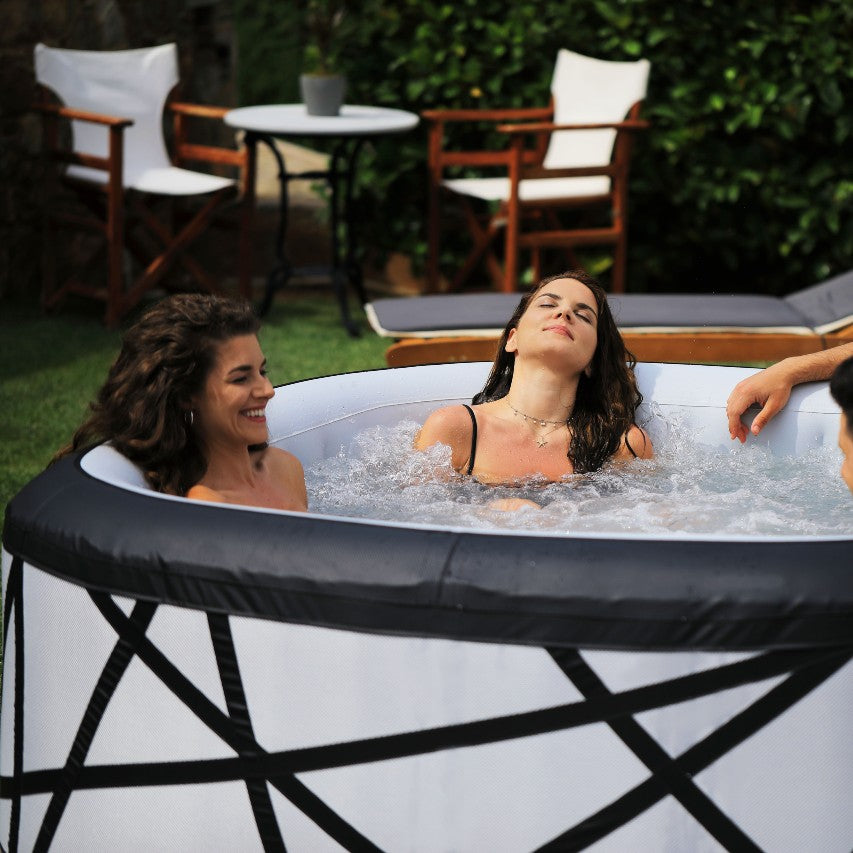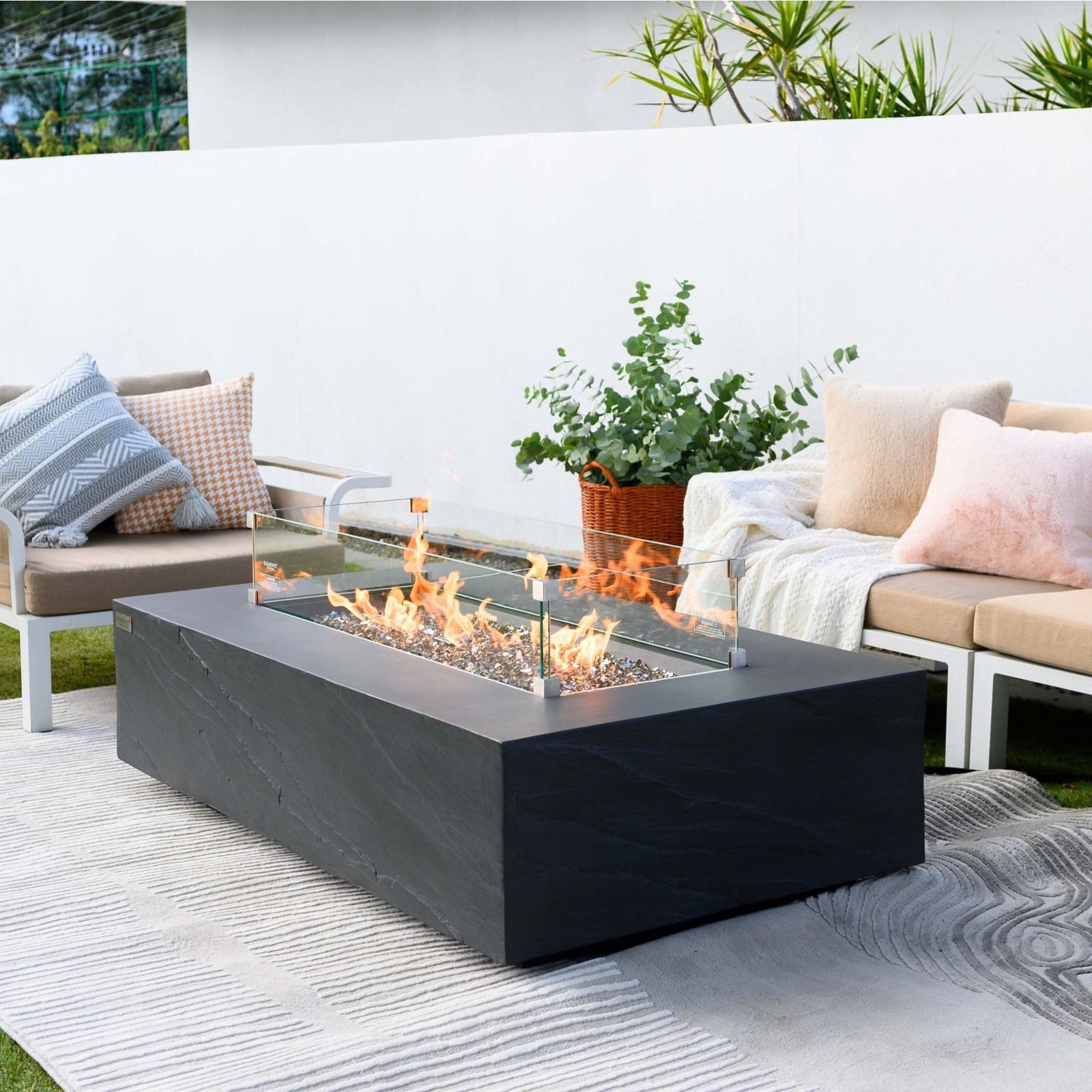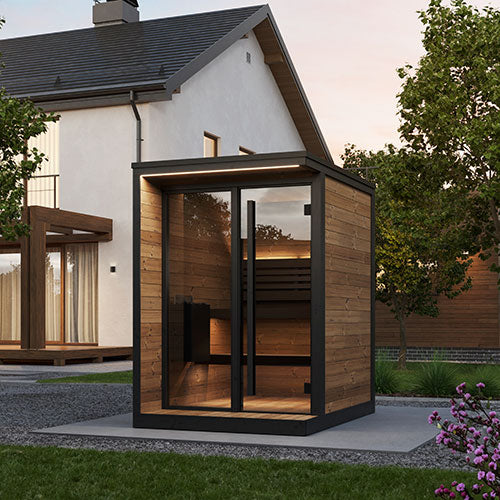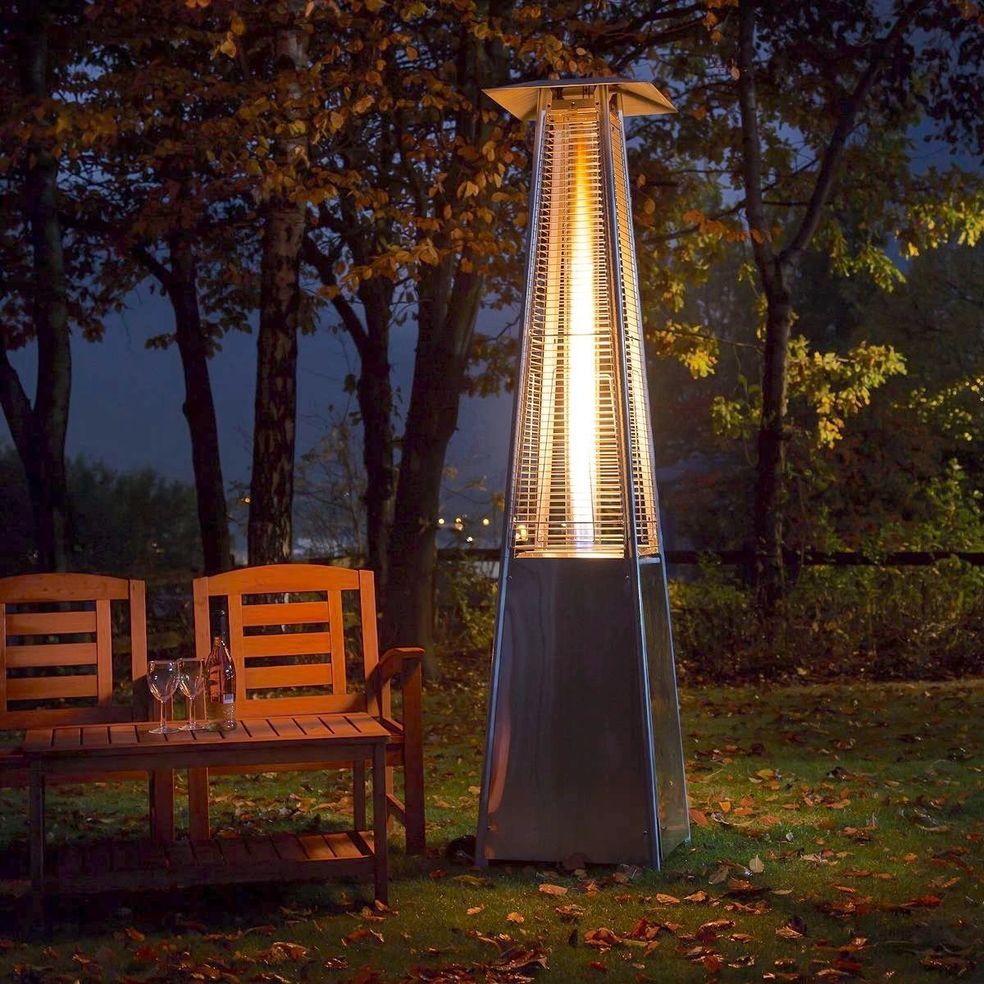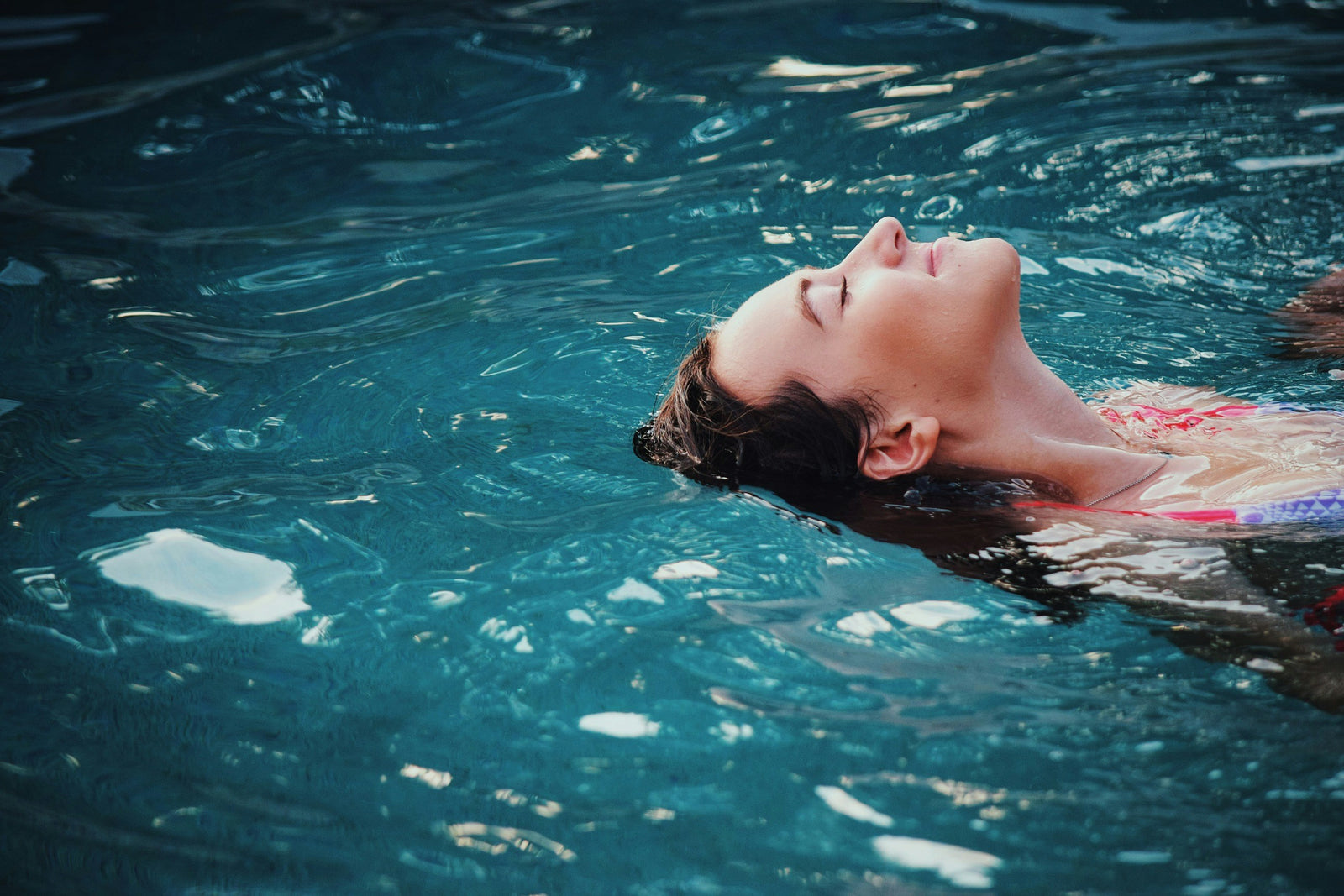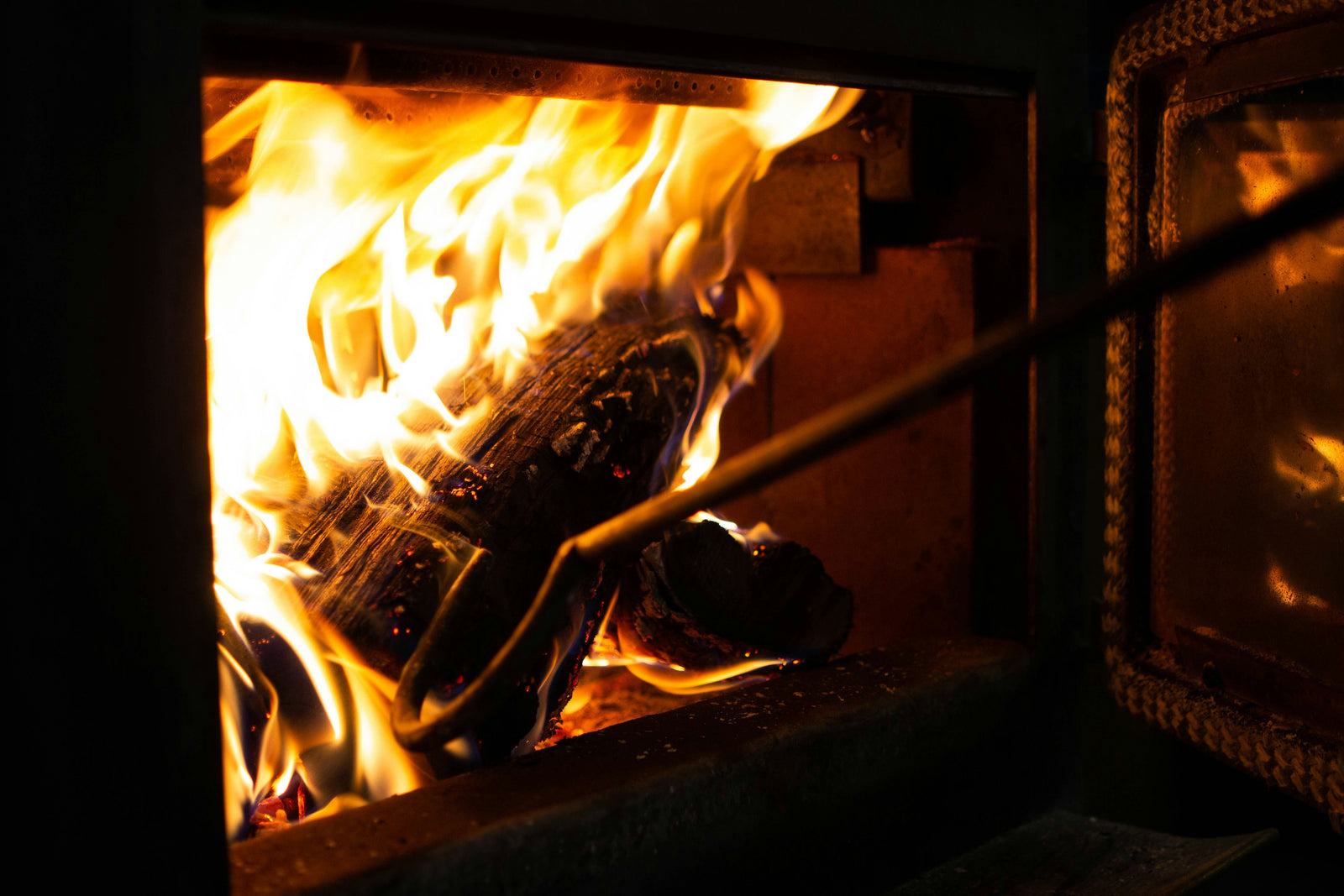There’s nothing quite like plunging into a cool pool on a hot summer day. But, there’s a fine line between refreshing and freezing.
Whether you want to extend your swimming season a few months or you’re looking to keep your pool in the optimal temperature range for your specific preferences, you have an abundance of heating solutions at your disposal.
Today, we’ll compare and contrast two popular choices - the solar pool heater vs heat pump pool heater. While each has its place, the electric pool heat pump has an obvious edge.
Solar pool heaters are eco-friendly and cost-effective in sunny conditions but can struggle during cloudy weather and require significant installation space.
A pool heat pump, on the other hand, provides reliable and consistent heating regardless of sunlight, with more manageable installation and lower long-term operational costs. This is why they’re the superior choice for year-round pool comfort.
You can learn more about the differences between a solar vs heat pump pool heater below, or, you can skip to the good part where you’re spending more time outdoors enjoying your pool by investing in the best pool heat pump today at Outdoor Direct.
What is a Solar Pool Heater?

Before we get into the differences between a heat pump vs solar pool heat, let’s explain how each technology works along with its unique pros and cons - starting with the solar pool heater.
These harness the sun's energy to warm your swimming pool, making it an environmentally friendly and cost-effective solution for extending the swimming season.
This type of heater uses solar panels, often installed on rooftops or open areas near the pool, to collect solar energy that is then converted to heat the pool water.
How it Works
The operation of a solar pool heater is straightforward:
- Solar Collectors: Solar panels or collectors absorb sunlight and convert it into heat.
- Water Circulation: Pool water is pumped through the collectors where it is heated by the absorbed solar energy.
- Return to Pool: The warmed water is then circulated back into the pool, gradually increasing the water temperature.
Key Benefits
- Increased Pool Usage: You’ll enjoy a longer swimming season, from early spring to late fall in many climates, by efficiently maintaining a comfortable water temperature with this type of heater.
- Energy Savings: The sun’s energy is free and abundant, so you can reduce the cost of heating a pool compared to traditional methods that require gas or electricity.
- Environmentally Friendly: These heaters produce no direct emissions, making them a green choice that contributes to reduced carbon footprints.
Considerations
- Climate Dependency: Performance largely depends on the availability of sunlight. Areas with limited sunny days may find performance to be inconsistent, or even downright unsatisfactory.
- Initial Setup and Space: Installation can be extensive since it requires adequate space for the solar collectors. The initial cost and the space needed for setup can be substantial.
- Slower Heating Time: You may be wondering…how long does it take to heat a pool with this style? Compared to other heating methods like the pool heat pump vs gas heater, solar pool heaters generally take longer to warm the pool, which may not be ideal for those seeking quick temperature adjustments.
What is a Heat Pump Pool Heater?

Now, let’s look at the other half of the solar pool heater vs heat pump pool heater debate. An electric heater is an efficient approach to warming your swimming pool by extracting heat from the surrounding air and transferring it to the pool water.
This type of heater is popular for its ability to maintain consistent water temperatures, even during cooler weather, making it an ideal choice for extending the swimming season.
How it Works
So, how does a pool heat pump work? We recently wrote a more detailed guide on the inner workings of these intuitive devices, but here’s a brief overview:
- Air Extraction: A fan pulls external air into the heat pump, directing it over an evaporator coil.
- Heat Absorption: The air heats refrigerant within the evaporator coil, turning it into a warm gas.
- Heat Transfer: This gas passes through a compressor that increases its temperature. It then moves to a condenser where it transfers its heat to the cooler pool water circulating through the system.
- Returning the Heat: The now-cooled water is pushed back into the pool, raising the overall water temperature.
Key Benefits
- Energy Efficiency: Heat pump pool heaters are among the most energy-efficient options available. They use less energy by transferring heat rather than generating it directly, which can lower operating costs compared to other solutions (including solar).
- Consistent Heating: Unlike solar heaters, heat pumps do not rely on sunny weather to function effectively. They can maintain desired water temperatures in a variety of weather conditions.
- Long Lifespan: With proper maintenance, heat pump pool heaters can last many years, often outlasting gas heaters due to fewer mechanical stresses during operation.
Considerations
- Upfront Costs: While operational costs are lower, heat pump pool heaters generally have a higher initial purchase price compared to other heating options.
- Climate Dependence: Even though these don’t need sunlight, they do need ambient temperatures within a certain range for peak efficiency. Performance drops in extremely cold weather since they rely on warm air to operate. In areas with frequent below-freezing temperatures, their performance might be less optimal.
- Space Requirements: Heat pumps require adequate space around them to ensure proper air intake and exhaust. This needs to be considered when planning pool heat pump installation.
Solar Pool Heater vs Heat Pump Pool Heater: Key Differences

You may already be starting to realize which approach to heating makes the most sense for your climate, budget, and preferences.
But if not, follow along we compare and contrast the solar vs heat pump pool heater side by side below to leave you with a clear understanding of which aligns with your specific needs.
Initial Cost
Solar pool heaters typically have a higher initial cost as you need to purchase solar panels and all associated hardware. The cost can vary widely depending on the size of the pool and the efficiency of the panels chosen. Installation is also more labor-intensive, which can add to the upfront expenses.
So, how does the pool heat pump cost compare? These are not cheap by any means, with models starting at a few thousand dollars if you want a dependable, efficient, and high-performance unit (like the AquaCal pool heater lineup).
However, they do tend to be less expensive upfront than solar pool heaters, which can easily exceed $5,000 on average compared to just $3,000 on average for heat pumps. As you’ll see below, though, the upfront cost is just one piece of the puzzle when choosing between a solar pool heater vs heat pump…
Operating Costs
It goes without saying that solar pool heaters are more affordable to run than their electrical heat pump counterparts. These utilize solar energy, which is free after installation.
That being said, you shouldn’t overlook the ongoing costs related to maintenance and occasional part replacements. Still, solar heaters are particularly attractive in sunny climates where their efficiency can be maximized.
Because pool heat pumps run on electricity, their operating costs are dependent on local energy prices. However, they are highly efficient because they transfer heat rather than generate it directly.
Modern heat pumps typically have high Coefficients of Performance (COP), meaning they are capable of producing several times the energy they consume. While you’ll pay more for a pump with a COP rating over 7 compared to one around 5, you’ll save more in the long run.
Lifespan
Solar pool heaters are known for their durability, often lasting 15-20 years with proper maintenance. Design simplicity and the lack of moving parts contribute to a longer lifespan, reducing the need for frequent replacements.
Now, heat pumps can also stand the test of time, commonly ranging from 10 to 15 years. Regular maintenance can extend their lifespan further, and technological advancements have made newer models more durable than ever.
It all depends on the specific manufacturer and model you invest in, but ultimately, this aspect of choosing between a pool heat pump vs solar pool heater is a wash.
Environmental Impact
As you can imagine, solar pool heaters have essentially no environmental footprint, as they use renewable energy from the sun. This makes them the best choice for eco-conscious pool owners looking to minimize their carbon emissions.
That’s not to say that electric pool heat pumps are bad for the environment - especially compared to their gas heater counterparts. However, electricity may be generated from fossil fuels depending on the region.
This is why investing in an efficient unit is so important. You can also find units that use renewable energy sources for power that makes them a greener option.
Installation Complexity
We want to preface this by saying that you should probably not attempt to install either a solar pool heater or an electric pool heat pump yourself. This is best left to the professionals. Nevertheless, installation complexity is still worth discussing.
Solar heaters need a significant amount of space, usually on rooftops, where solar panels can receive direct sunlight. The complexity of installing these panels and integrating them with the pool's plumbing system can be a challenge, which can drive those upfront costs we discussed earlier even higher.
It’s important to take a look at your home and determine if installing solar is actually viable. Do you have a location on your roof that would receive adequate sunlight to actually heat your pool? This is something a professional can help you determine.
On the other hand, pool heat pumps are easier to install. You only need a level space near the pool for placement with adequate airflow around the unnit. They require electrical and plumbing connections, but the process is generally less complex than setting up a solar heater system.
Performance in Various Climates
While a pool in California or Arizona will greatly benefit from a solar pool heater, not every climate gets enough sunlight to actually power solar pool heaters. This will only be an option if you live in sunny, warm regions. Their efficiency plummets in cloudy, cold areas.
This is where the electric pool heater has an obvious edge. It’s true that these do rely on a certain ambient temperature for proper operation - but they can still extract heat from the air in cloudy climates, functioning well even in cooler temperatures.
Just be aware that their efficiency will drop as well in cold weather. However, you will find these to be a far more versatile solution for heating your pool. That being said, which is right for you?
So, Which is Right For You?
Choosing between a solar pool heater vs heat pump will ultimately come down to considering your local climate, budget for the initial costs and ongoing expenses, and other priorities.
However, pool heat pumps tend to be the more popular choice because they’re simply more versatile. Imagine the frustration of spending $5-10k on a solar heater only to discover that you aren’t getting the heating performance you’d hoped for on those cloudy days.
The whole point of this investment is to extend your swimming season earlier in spring and later in fall - but these are the times of year when solar performance falls short. For this reason, we’d recommend you go with the electric pool heat pump if you had to choose one. But, what about using both?
Should You Use Both?
Combining both heating systems can offer the best of both worlds, maximizing efficiency and environmental benefits. This hybrid approach can ensure optimal pool temperature year-round, regardless of weather changes.
You can rely on the solar to provide essentially free heating when conditions are good, and when the solar’s output falls a bit short, you can use your electric heater.
Just be aware of the financial implications of opting for both, as you’re doubling your upfront costs, your operating costs, your maintenance costs, etc.
That being said, think about all the value you’ll get from using your pool more, making memories with family and friends, and relaxing and unwinding in your own personal outdoor oasis. What price tag could you possibly put on this?
Extend the Swimming Season in the Most Cost-Effective Manner With Heat Pumps From Outdoor Direct!

If you’re ready to extend your swimming season and spend more time outdoors, you can take the first step by investing in the pinnacle of pool heating solutions right here at Outdoor Direct.
We’ve curated the full selection of both AquaCal TropiCal pool heaters and AquaCal Heatwave Superquiet pool heaters.
Oh, and if you find your pool gets too hot during the summer, don’t worry - we have anAquaCal chiller just for you!Better yet, get a pool heater chiller combo that does it all.
This means whether you’re looking for a budget-friendly solution that still delivers high performance, or you want the best of the best in a more sophisticated, silent heat pump, we’ve got you covered.
Each of these series boasts high COP ratings up to 7.0 and BTUs ranging from 52k-143k. They feature advanced ThermoLink heat exchangers for an ultra-long life and unparalleled reliability. You also get peace of mind knowing you’re investing in the most trusted equipment since 1981, backed by a 7-year warranty.
You don’t have to stress about pool heat pump sizing, either. We have a world-class customer service team on standby ready to help you make the right choice for your unique needs based on climate, pool size, budget, and personal preferences.
Better yet, get started on the right foot by taking our quiz below to find the ideal solution, whether you’re looking for a small pool heat pump or commercial pool heat pump!
Bringing Our Comparison of the Solar vs Heat Pump Pool Heater to a Close
That concludes our in-depth breakdown of choosing between an electric heat pump vs solar pool heater. Hopefully, you have a clear understanding of the pros and cons each brings to the table and which aligns with your unique scenario.
As a reminder, solar has its place in warm, sunny climates if you can stomach the upfront investment. But, heat pumps offer far better consistency and efficiency across various weather conditions with easier installation and generally lower upfront costs.
Our blog has more resources like AquaCal vs Hayward heat pump, should I leave my pool heat pump on all the time, pool heat pump not heating, AquaCal vs Pentair heat pump, and more.
Ready to find your ideal pool heating solution? Outdoor Direct has the industry’s most trusted pool heat pumps so you can extend your swimming season and experience a whole new level of comfort in the pool. Shop today or reach out for a personalized recommendation!
Still not sure which heat pump is right for you?

